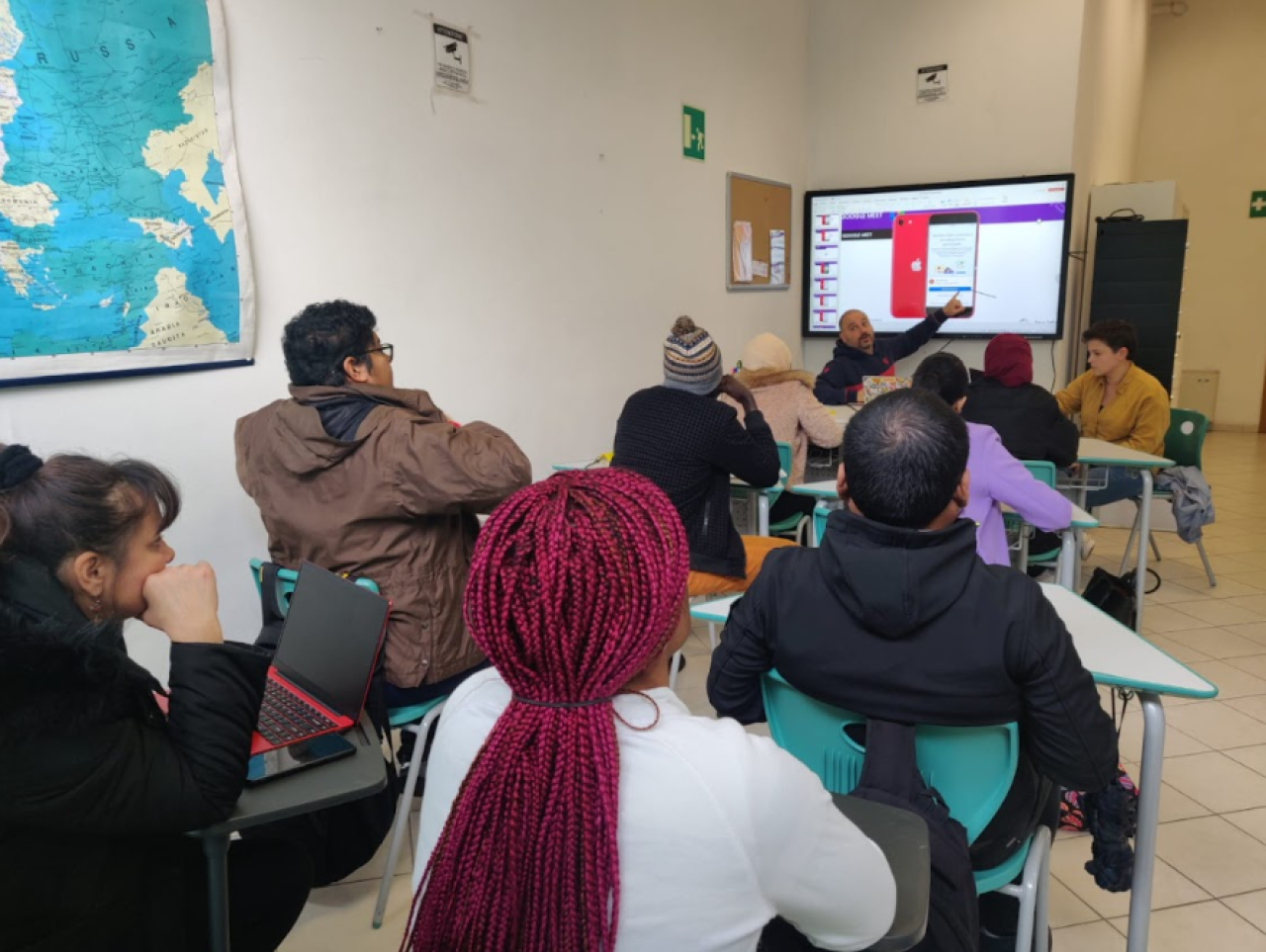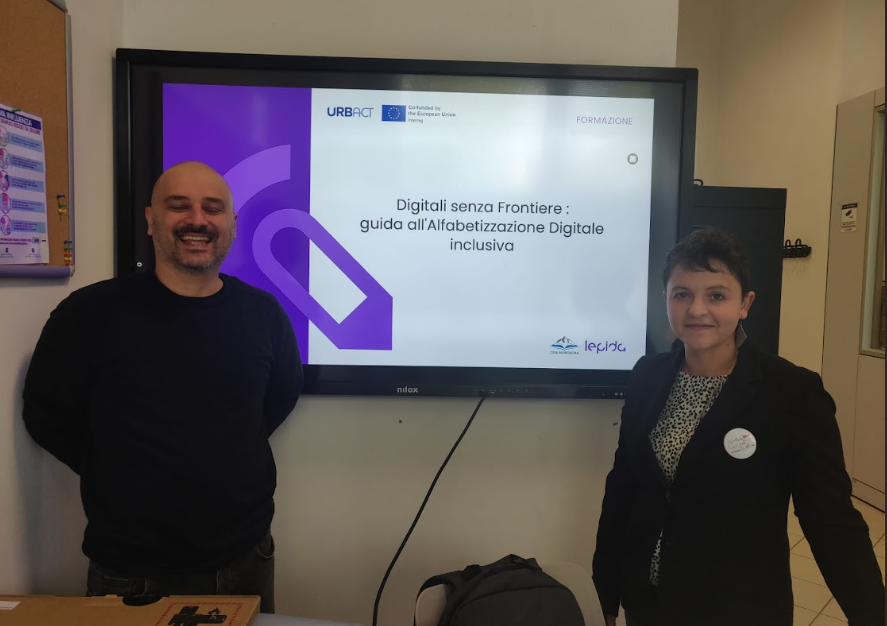Description of the Pilot Course:
The "Digitali senza Frontiere" pilot course comprised six sessions, each lasting two hours, conducted at CPIA Montagna - Adult Education Center in Berzantina, part of the municipality of Castel di Casio, Bologna. Fifteen individuals, including 10 women and 5 men of diverse nationalities, participated in the course, engaging in educational programs at CPIA Montagna.
For practical exercises, participants used their personal devices, fostering familiarity and comfort with technology. The course was facilitated by an IT consultant and a professional educator, ensuring comprehensive coverage and effective delivery of the curriculum.
Program Modules:
The course modules covered fundamental computer knowledge, digital vocabulary, and practical skills applicable to both educational paths and everyday use. Topics included device and operating system basics, digital vocabulary, Google apps (Gmail, Drive, Meet), and practical tasks such as password modification, creating documents, and web navigation for educational and job opportunities.
Methodology and Outcomes:
The interactive approach of each session encouraged active participation, combining theoretical content presentation with practical exercises. Participants engaged in tasks such as email management, document creation, and video calls, fostering positive interaction and skill development.
Feedback mechanisms, including short questionnaires and assessments, facilitated ongoing evaluation and adaptation of the course content. Despite challenges such as language differences and varying skill levels, the course demonstrated adaptability and inclusivity, accommodating diverse learning needs.
Future Steps:
Following the pilot course, discussions between Lepida and CPIA-Adult Education Center explored the possibility of continuing the initiative, incorporating specific topics and new content based on participant feedback. This pilot course marks the beginning of an integrated effort within the Digi-Inclusion project, aiming to address the digital gap and promote inclusive digital literacy in the Apennine region.
In conclusion, the "Digitali senza Frontiere" pilot course represents a significant milestone in efforts to bridge the digital divide. Through collaboration, adaptability, and a focus on inclusivity, this initiative serves as a testament to the potential for future impact and underscores the importance of empowering individuals through digital literacy.


